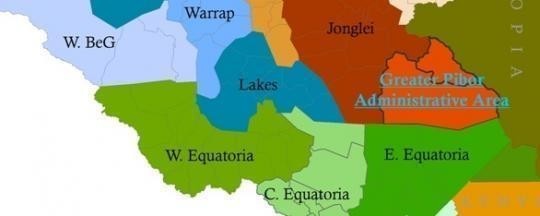Communities of Jonglei State and their neighbours in the Greater Pibor Administrative Area (GPAA) are peacefully co-existing following a peace conference held in Juba early this year, an official said.
On 27 January, a three-day peace conference by communities of Greater Jonglei—Dinka, Nuer, Murle, and Anyuak—concluded in Juba, with the communities agreeing to bury their differences and peacefully coexist.
The initiative is part of government efforts to restore peace to Jonglei following last year’s months-long deadly clashes involving youth from Dinka, Nuer, and Murle.
Among the key resolutions were the recovery of abducted children from all sides, return of raided cattle, creation of joint police, a buffer zone, a common market, local courts, and punishment of the deal violators.
Speaking to Radio Tamazuj on Tuesday, Daniel Abocha Ali, the spokesperson for the Jonglei Peace Committee, said the implementation process is progressing.
“As you can see, the peace is going on well. Abducted children are being recovered, stolen cattle are being retrieved and returned, and trade is ongoing among the communities. Those are the dividends of peace,” he said.
He pointed out that they are committed to ensuring that peace prevails in Jonglei by having all the resolutions implemented.
Uror County Commissioner, Tang Chatim, commended the progress made but said that recurring attacks in parts of Jonglei will impede the realization of permanent peace in the conflict-stricken region.
“Following the Juba peace conference, more follow-up local initiatives were held in Pieri, Pibor, and Akobo. And as a result, 48 children were recovered from both sides,” Chatim said. “Despite the achievements, since the beginning of April, we reported over 3 cattle raids in parts of the greater Lou area. And as we speak, cars traveling to Uror are being attacked every day by criminals from Pibor.”
The county official warned that such recurring attacks if not checked may lead to more cyclic violence among the communities.
For his part, Lokali Amae, a lawmaker representing Pibor County in GPAA legislative council and a member of the peace committee, said: “On cattle raids in parts of Jonglei, I cannot accept or deny that our youth are involved because we do not know. But if there are some criminals, we will monitor them and recover cattle they have raided. Now, several cattle raided from Pieri have been recovered and the operations are still ongoing. So, soon we will hand them over.”
Meanwhile, Philip Thon Leek, a parliamentarian representing Jonglei’s Duk County in the National Legislative Assembly and a member of the high-level peace committee, said the Juba peace conference may suffer collapse because the national government has been so reluctant since late January.
Bol Deng Bol, a prominent activist in Jonglei, said while cyclic violence has largely been muted, little needs to be celebrated because the peace deal remains fragile.
“All these positive outcomes like the return of the abducted children are a good sign of peace. But for all the 43 resolutions to last, we need a guarantee. The guarantee is placing a buffer zone to ensure that criminals from Jonglei or Pibor do not cross. If this is done, there will be a guarantee that Anyidi market, return of the abductees, and raided cattle are not interrupted again,” Bol said.
He urged the government to show goodwill for peace to be restored in Jonglei.
“The last part of the people-to-people conference between Jonglei State and GPAA talks about the implementation matrix that tells us the time and ways of implementing the resolution. It also talks of a monitoring body. But the government has done nothing so far. We cannot jump to things like the Anyidi market without a matrix if anything happens who will be held accountable?” Bol asked.




